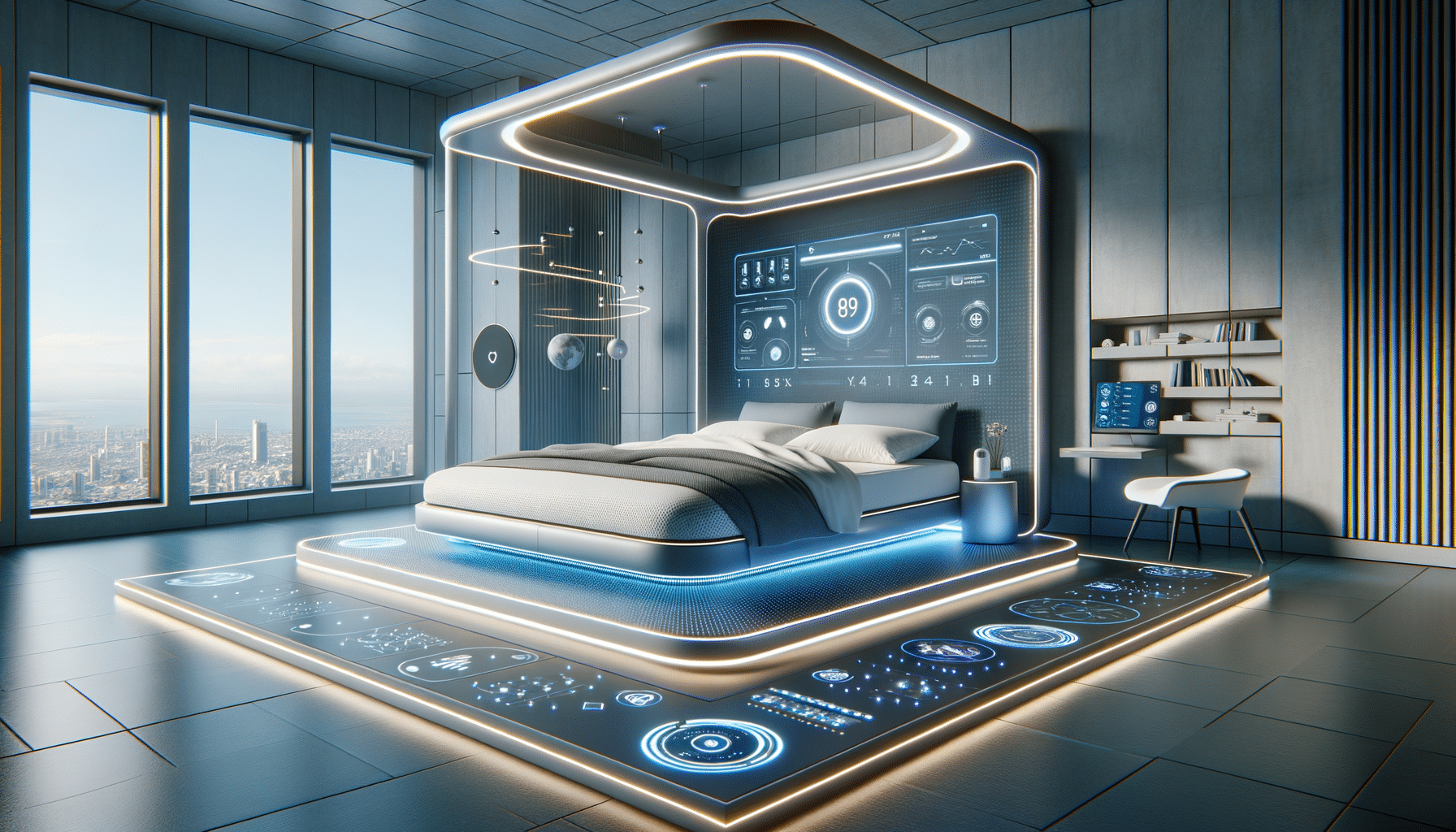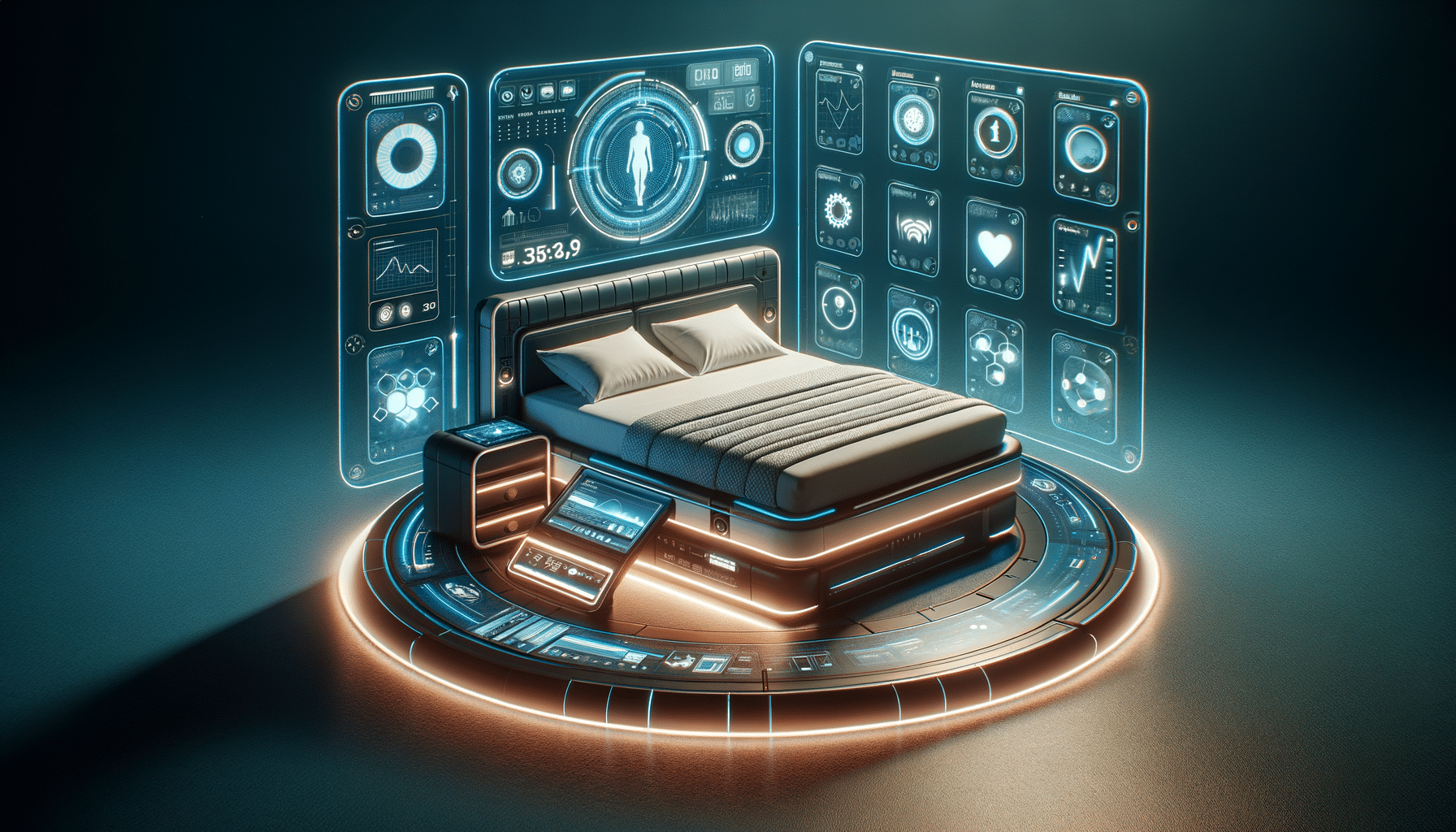
Exploring the Future of Sleep: Smart Beds
Introduction to Smart Beds
In the ever-evolving world of technology, smart beds are emerging as a significant innovation, transforming the way we approach sleep and wellness. These technologically advanced beds are designed to enhance comfort, improve sleep quality, and provide valuable health insights. As sleep is a critical component of overall health, the advent of smart beds offers a promising solution for those seeking to optimize their rest. Beyond just a place to sleep, smart beds integrate features like sleep tracking, climate control, and personalized settings, making them a noteworthy addition to modern homes.
The Technology Behind Smart Beds
Smart beds are equipped with a range of sensors and connectivity options that enable them to gather and analyze data about your sleep patterns. These beds often include features such as:
- Sleep Tracking: Monitors sleep cycles, duration, and disturbances to provide insights into your sleep quality.
- Climate Control: Adjusts the bed temperature to suit individual preferences, promoting a more restful sleep environment.
- Adjustable Positions: Offers customizable positions for better comfort and support, which can be controlled via a smartphone app or remote control.
- Health Monitoring: Some models come with integrated health monitoring tools, such as heart rate and breathing sensors.
The integration of these technologies allows users to gain a deeper understanding of their sleep habits and make informed decisions to improve their sleep quality.
Benefits of Using Smart Beds
Smart beds offer a multitude of benefits that go beyond traditional mattresses. One of the primary advantages is the ability to personalize sleep settings for each user. This personalization can lead to improved sleep quality, as the bed can adapt to individual comfort needs. Additionally, the health monitoring features provide users with valuable data that can be shared with healthcare professionals to address sleep-related issues.
Furthermore, smart beds can contribute to overall well-being by reducing discomfort associated with poor sleep posture and temperature regulation. By optimizing these factors, users may experience increased energy levels and enhanced mood throughout the day.
Considerations Before Purchasing a Smart Bed
While the benefits of smart beds are compelling, there are several considerations to keep in mind before making a purchase. Cost is a significant factor, as smart beds tend to be more expensive than traditional mattresses. It’s important to evaluate whether the features offered align with your specific needs and lifestyle.
Another consideration is the compatibility of the smart bed with other smart home devices. Ensuring that the bed can integrate seamlessly with your existing technology can enhance the overall user experience. Additionally, potential buyers should research the brand’s reputation and customer reviews to ensure they are investing in a reliable product.
Future Trends in Smart Bed Technology
The future of smart beds is promising, with ongoing advancements in technology expected to bring even more innovative features. One anticipated trend is the integration of artificial intelligence to provide more personalized sleep solutions. AI could analyze data from various sources to offer tailored recommendations for improving sleep quality.
Moreover, future smart beds may include enhanced connectivity options, allowing for seamless integration with other health and wellness devices. This connectivity could enable users to create a comprehensive health profile, offering a holistic approach to well-being. As technology continues to evolve, the potential for smart beds to revolutionize sleep and health is significant, making them an exciting development in the realm of home technology.


